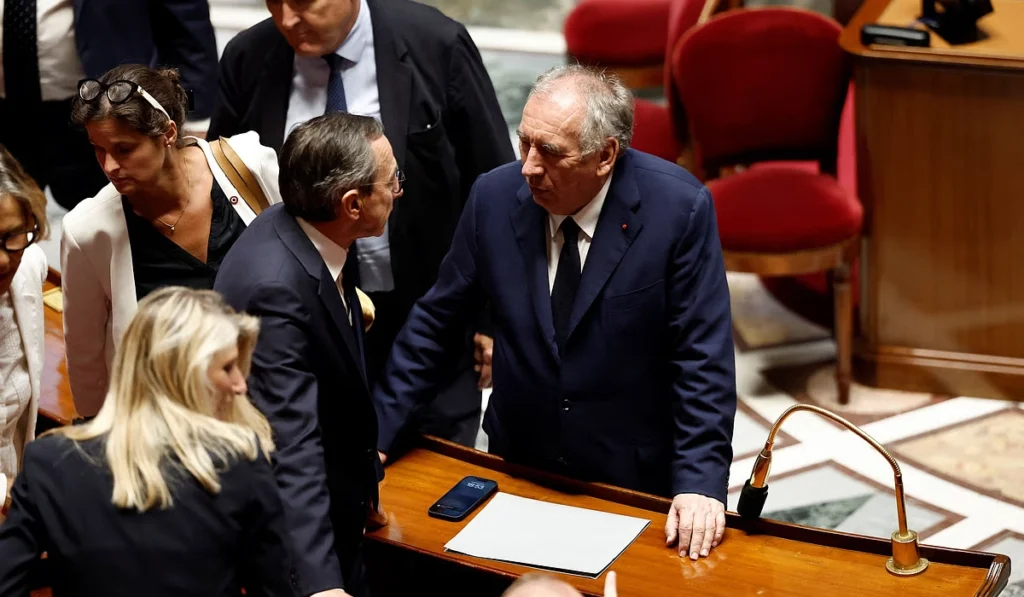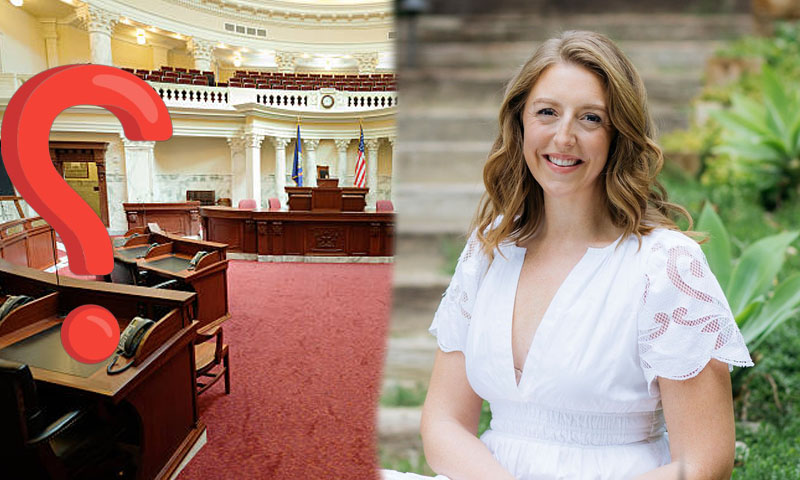- Web
- Feb 25, 2026
French PM ousted in confidence vote, deepening crisis

PARIS: France’s parliament voted on Monday to bring down the government over its plans to tame the
ballooning national debt, deepening a political crisis and handing President Emmanuel Macron the task of finding a fifth prime minister in less than two years.
Francois Bayrou, 74, took office as prime minister only nine months ago. He will tender his resignation on Tuesday, his office said, leaving Macron to face a narrowing set of options, with financial markets signalling worry at France’s political and fiscal crisis.
Bayrou had called the confidence vote unexpectedly to try to win parliamentary support for his strategy to lower a deficit that stands at nearly double the European Union’s 3 per cent ceiling and
to start tackling a debt pile equivalent to 114 per cent of GDP.
But opposition parties were in little mood to rally behind his planned savings of 44 billion euros ($51.51 billion) in next year’s budget, with an election for Macron’s successor looming in 2027.
Hence, they forced Bayrou out, with 364 votes against him and only 194 backing him.
In the process, Bayrou became the first prime minister in the history of modern France history to be removed in a confidence vote. The previous ousters have always been a result of no-confidence motions.
‘PHANTOM GOVERNMENT’
“This moment marks the end of the agony of a phantom government,” far-right leader Marine Le Pen said, pushing for a snap parliamentary election, which Macron has so far ruled out.
Similarly, Mathilde Panot of the hard-left France Unbowed told Bayrou in the debate before the vote, “Today is a day of relief for millions of French people, of relief over your departure.”
Macron could now nominate a politician from his own centrist minority ruling group or from the ranks of conservatives as the next premier, but that would mean doubling down on a strategy that has failed to yield a stable alliance.
He could tack to the left and nominate a moderate socialist, or choose a technocrat.
No scenario would be likely to hand the next government a parliamentary majority. It was inevitable that the need to form a new government would result in a dilution of the deficit reduction plan, Finance Minister Eric Lombard said before the vote.
Ex-French president Sarkozy will be sent to prison next week
Macron may eventually decide the only path out of the crisis lies in calling a snap election, but he has so far resisted calls from Le Pen’s National Rally and from France Unbowed to dissolve parliament a second time.
FISCAL MESS
The next government’s most pressing task will be to pass a budget – the same challenge Bayrou faced when he took office.
“You have the power to bring down the government, but you do not have the power to erase reality,” Bayrou told lawmakers before the confidence vote.
“Reality will remain relentless: expenses will continue to rise, and the burden of debt, already unbearable, will grow heavier and more costly,” he said.
Meanwhile, France’s EU peers will be watching closely.
France holds the highest deficit as a percentage of GDP in the euro zone — the bloc using the EU’s single currency. It pays more to service its debt than Spain and spreads against benchmark German 10-year bonds are at their highest level in four months.
Fitch, often seen as a first mover among rating agencies, reviews its AA- rating with a negative outlook on September 12. Moody’s and S&P Global, which have equivalent ratings, follow in October and November.
A downgrade would hamper France’s ability to raise money at low interest rates from investors, potentially deepening its debt problems.
On the other hand, a lengthy period of political and fiscal uncertainty risks undermining Macron’s influence in Europe at a time when the United States is talking tough on trade and security, and war is
raging in Ukraine on Europe’s eastern flank.
Read more: Greenland not for sale, outside interference unacceptable: France
NO SNAP ELECTIONS
Macron and political figures from centrist and conservative parties deem that a snap election would not solve the crisis and that talks with the Socialists should be pursued, two sources familiar with Macron’s thinking said.
The Socialists have offered a counter-budget that would impose a tax of at least 2 per cent on personal wealth greater than 100 million euros and generate savings of 22 billion euros — a proposal that would be tough to marry with the pro-business reform agenda of Macron’s presidency.
Discontent may also start brewing on the streets. A grassroots protest movement called “Bloquons Tout” (“Let’s Block Everything”) is calling for nationwide disruption on Wednesday. Trade unions are plotting walkouts the week after.





